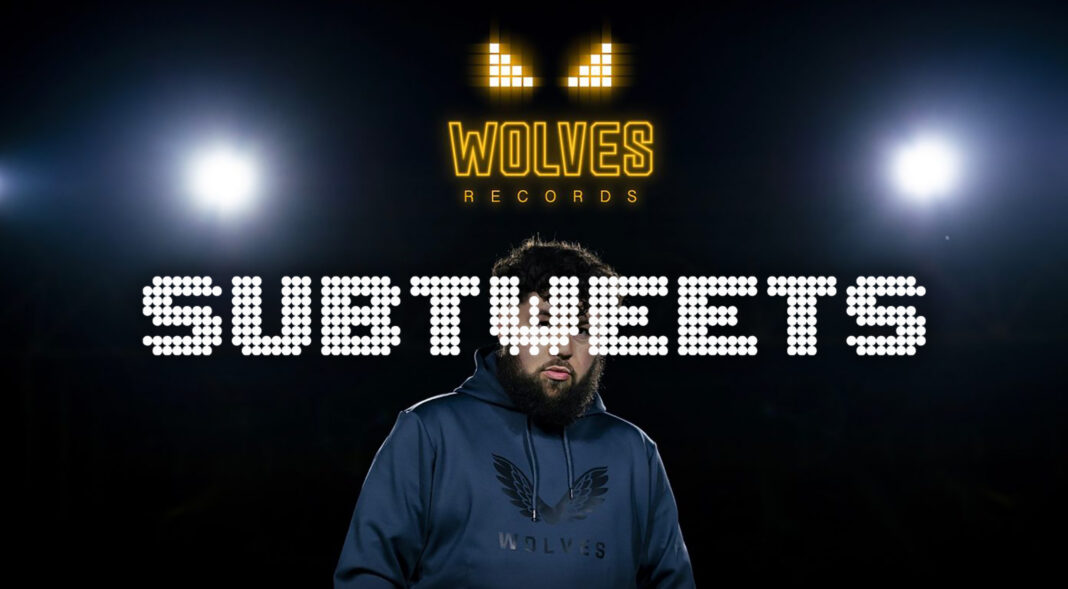Throughout the pandemic, it has become painfully apparent that music is in a bad way. With closing venues, artists encouraged to ‘retrain’ and endless woes over the pittance of streaming revenues, it’s been tough to know exactly how we are to dig ourselves out of such a hole. The cold, hard answer is cash flow, and grassroots music has needed a generous windfall for some time. Where better to look than an industry known for kicking some serious money about?
When Wolverhampton Wanderers Football Club announced last week that they had started a new record label – the first of its kind – it’s fair to say that the initial reaction was one of surprise. Some footy fans felt that it was a cynical bid to distract from Wolves’ poor league table performance and lack of new players; while some music fans were similarly skeptical, wondering if this was merely an act of club vanity, dipping their toe in without really caring about the end product. Others did welcome the innovative thinking but there was a slew of unanswered questions as to exactly what such a label might look like and how it fits into the wider landscape of where entertainment and culture is at.
Backed by Warner, the club insists this is not a marketing campaign or a naff attempt to boost supporter engagement, but a genuine, legitimate business in its own right. To spearhead this new project, they have hired a selection of A&R consultants, including rapper and producer S-X (who has worked with the likes of Childish Gambino, Chance The Rapper and J. Cole) and Peter Rudge, once manager of The Who and The Rolling Stones. According to Rudge, Wolves Records is a way of recognising a “universal language” between communities: “Wherever in the world you visit, you will likely see a Beckham or a Beatles T-shirt, and the footballers of today have so much in common with musicians in terms of influencing and setting the cultural tone of the times.”
Dating back to school days, the assumed division between footy fans and music heads can cause some friction. Long-stamped stereotypes dictate the football ‘lads’ to be bullish and obnoxious, while us sensitive music types sit quietly in a corner with our headphones on, asking “not to be bullied today, thanks”. And yet, more than ever, football and music often connect in more ways than you might think. Whether it’s acts like Los Campesinos! and Loyle Carner weaving footy-quips into their lyrics or bands performing homecoming shows in their local team’s stadiums, music had long been the bedrock of matchday stands – the chants, the moshpit-like throng of limbs when a goal is scored, the strains of ‘Sweet Caroline’ or ‘You’ll Never Walk Alone.’ Long before Spotify, both the FIFA soundtracks and Soccer AM were core outlets to hear new music, and they continue to be hugely instrumental in the mainstream platforming of emerging acts in much the same way as a traditional pop music programme might be.
The degree of representation on offer goes deeper still. Both music and football are a way for young working-class people to find success and solace outside of traditional education pathways, with increasing awareness of their ability to affect social change. While sexism, racism and the normalization of gendered violence still loom large, both the ‘Kick It Out’ campaign and wider projects of player-political advocacy (come through, Marcus Rashford) show that football is in the midst of a serious rebrand – no longer a haven for toxic masculinity without notable pushback or critique. In a time where consumers are becoming more vocal about their multi-faceted interests and politics, it seems totally logical that a football club might look to music as a sympathetic brand, a place where such cultural clout and progressive ambassadorship might continue.
It’s a thought shared by Kev Lawson, host of new music podcast EditRadio and the brains behind EditFootball/WyAyeScout, a football analytics platform that complements his regular engagements with the wider sociopolitics of the sport.
“The modern football club is more than the matches on the field: in an industry with nearly limitless budgets and a competitive nature, clubs are making legitimately great content across every channel you can think of,” he says. “As last year’s European Super League saga showed, the top clubs are looking for ways to cement themselves as global brands and franchises. Gen X and Millennial fans have grown up with football as a core leisure pursuit, but now they’re competing for the attention of Gen-Z and Gen-Alpha audiences who are more interested in online metaverse spaces like Fortnite and Minecraft. Along with e-sports, a move into music is the next logical step in securing new markets.”
With everything set up, the question turns to the acts themselves. Wolverhampton isn’t necessarily known for its breakout popstars (unless you’re harking back to the days of Slade and Babylon Zoo), but what the Midlands does have is a bursting roster of diverse musical talent that taps into two key areas synonymous with football: perky indie and grime-flecked RnB – each championed well amongst the players themselves. Breakout stars such as Pa Salieu (Coventry), Miss Lafamilia (Birmingham) and Young T & Bugsey (Nottingham) haven proven that mainstream success outside of London is entirely possible, with excitable new Midlands buzz following the likes of post-emo outfit Myriam Adams, bedroom popstar Hanwell and indie-alt multi-instrumentalist Kyetoba. Further up North, Hull rapper Chiedu Oraka feels like a perfect fit for a sport-led record label, breaking down barriers of what masculinity means as a Black Yorkshireman. With the promise of support from a global distribution network, airplay at the stadium and promotion across the club’s myriad digital outlets, this sort of deal is one that could change the life of a newer artist, exposing them to an enormous crowd.
While Wolves have stated their desire to invest in homegrown talent, there is no knowing where such a label might lead. Wolves’ major shareholders are Fosun, a Chinese business, and its players reflect a wide diaspora that will surely feed into the label, hopefully creating a roster that feels as inclusive and reflective as football itself is claiming to want to be. To be of true community benefit, Wolves Records can’t trade exclusively in lad anthems – as Lawson, identifies – the label needs to work to show genuine holistic support to its artists, proving the kind of ethos they want to maintain.
“There’s a sweet spot, the middle of a Venn diagram of local, authentic, and commercially viable that would really add value to the wider industry,” he says. “It doesn’t matter what the genre is, but the tone needs to be right. For this partnership to really work, Wolves records will need to contend with the legitimately troubling parts of online football fandom, the racist and sexist abuse that footballers and fans are so often subjected to. Football can be tribal, and by being associated with a club, Wolves will need to support and protect its artists from any kind of abuse.”
“Nonetheless, I still think this deal might set an important precedent for football and music’s relationship. Both have fandoms that are defined by how they make us feel, the connection and community. It might feel fanciful to think that Wolves A&R team might be the ones to find the next big musical thing, but they can give any emerging artist a huge platform from which to grow, and are in a great position to reap the benefits.” With the right infrastructure in place, who says this kind of deal can’t be a win for both teams?
Every week, Jenessa Williams unpacks the biggest topics setting Music Twitter alight. Dive into even more Subtweets in her weekly column.







